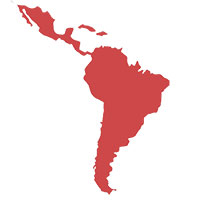A small delegation of Indigenous women have picked up the flag in place of their late husbands in the fight against illegal loggers encroaching on the their land for timber. They are the new lobbyists to the Peruvian government for land rights.
In the ten years before they died, Chota and his band of activists had been trying to obtain official land rights, as they believed this would enable them to better protect their small part of the Amazonian rainforests. Still, their wives are waiting to receive the title for 80,000 hectares of ancestral tropical forest.
Ergilia Rengifo, the wife of slain activist Jorge Rios, denounced the Peruvian government for its inaction in response to the killings.
“Three months after the tragedy, the government still has not complied with our demands to title our land. We have received many promises, including from Prime Minister Ana Jara, but we have yet to see any concrete action,” she said.
“We demand justice for our families and our communities, and for title for our lands, which would allow us to protect our forests.”
Disputes over contested Amazonian land between Brazil, Peru and Indigenous communities coupled with a slow, unresponsive judicial system cloud the human rights injustices that are happening in the area.
Many government officials are insensitive to the issues of Indigenous people, which has in turn given way to apathy, argues Juan Carlos Riveros Salcedo of World Wildlife Fund (WWF) Peru.
“In many of these cases, complaints are filed or treated as any claim. The judicial system is very slow, very sensitive to corruption, and [there is] little political will,” he said.
“We all regret what happened,” says Gabriel Quijandría, a deputy minister at the Peruvian Ministry of Environment. “It has certainly been something that should not have occurred,” he added, whilst also confirming an investigation was under way. Two people have so far been detained by authorities on suspicion of involvement. Quijandría also said the approval process of a US$80 million project funded by the Interamericano Bank, which deals with land titling for Indigenous people, was being accelerated and will be be operational next year.
Promises like this have been made and broken before, and vague disregard is not acceptable when people’s lives are on the line, according to Kelly Dent, ead of the the Oxfam delegation at the COP20 climate change negotiations and the woman who organised the ‘action’ along with a number of other collaborators.
“This case is far from being resolved,” Dent argues, “as is the case of many other right defenders around the world…these people were fighting for their lives and their livelihoods as well as the environment. These widows have small babies who will never ever see their fathers. [These women] are very inspirational. It’s very moving and emotional.”
Standing with the widows were two Indigenous leaders from the Brazilian side of the border. They too called for the Peruvian government to halt the violence trickling into their lands.
This year’s host of the UN’s climate talks is the fourth most dangerous country for environmental activists; the cruel irony is not lost on those attending. Since 2002, environmental lobby group Global Witness has registered 57 killings of Peruvian environmental activists. They have registered far fewer convictions for these killings.
Chanting along with the widows, those attending the COP20 negotiations echoed the cry: “todos somos Sawetos,” or “we are all Sawetos”. As host of these talks, the Peruvian Government has no choice but to answer this call and end impunity for the criminal killing of people who simply want to live in their own home.













comment